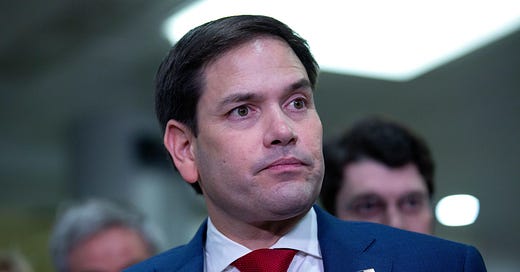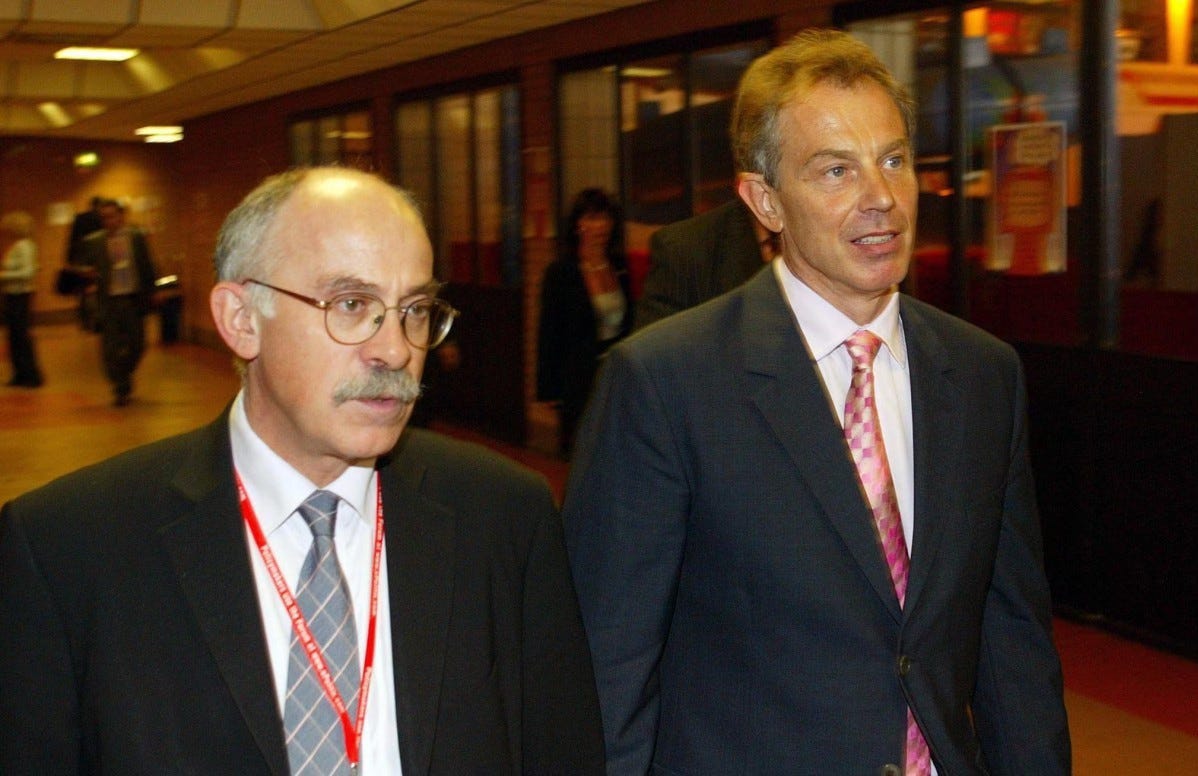
Donald Trump is expected to imminently assign the role of America’s top diplomat to Marc Rubio, a former rival he once labelled “Little Marco”, while mocking him for sweating profusely.
If confirmed, Rubio, a Florida senator who challenged Trump for the 2016 Republican presidential nomination, will be the first Latino to serve as US secretary of state.
Since their days exchanging insults as political competitors, Rubio has morphed into a staunch Trump loyalist. But how will his appointment help to steer the direction of Trump 2.0?
The 53 year-old is considered a foreign policy hawk, taking hard lines on China, Iran, Venezuela and Cuba in particular.
In 2019, Rubio helped persuade Trump to adopt a harsh sanctions policy against Venezuela’s authoritarian president, Nicolás Maduro. He also sponsored a bill to prevent the import of Chinese goods made with the use of forced labour by China’s Uyghur minority. And he is a staunch defender of Israel’s military offensive in Gaza.
On Ukraine, however, he appears to have shapeshifted somewhat to fall in line with Trump’s own stance. Reflecting the fact that he has traditionally favoured a more interventionist approach than the President elect.
In the early months of Putin’s full-scale invasion of Ukraine, Rubio labelled the Russian President “a killer” and took to social media to rally American support for Kyiv.
More recently, his position has changed. He was one of 15 Republican senators to vote against a military aid package for Ukraine that passed in April, while arguing in interviews as of late that the war has reached stalemate and Ukraine needs to seek “a negotiated settlement” with Russia.
Immigration policy is another area where Rubio’s shapeshifting tendencies have come to the fore.
While running for the Republican presidential nomination in 2016, Rubio, the son of Cuban immigrants, received criticsm from some hardliners for stating that mass deportations of millions of undocumented migrants was not “a realistic policy”.
In recent months, however, Rubio has defended inflammatory remarks made by Trump, including his comments that immigrants are “poisoning the blood of our country”.
What’s more, any sign of a potentially softer stance on immigration policy from Rubio is more than countered by other appointments made by the President elect.
Yesterday, Trump appointed Tom Homan, former head of US Immigration and Customs Enforcement during his first term, as the incoming “border tsar”. Homan has been described as the “intellectual father” of the previous Trump administration’s contentious family separation policy. He has vowed to completely shut down the US southern border and, during the Republican National Convention in the summer, directly addressed undocumented migrants with the warning: “You better start packing now.”
Other confirmed appointments include congresswoman Elise Stefanik as the new US ambassador to the United Nations. Stefanik is expected to be a staunch supporter of Israel, having previously accused the UN of “antisemitism” in its approach to the Jewish state.
Susie Wiles, meanwhile, Trump’s former campaign manager, will serve as his Chief of Staff. Wiles, who is generally regarded as an efficient operator, has already worked in Washington under Ronald Reagan. As for his deputy chief of staff, this role is to be filled by Trump’s former speechwriter and ultra-loyalist Stephen Miller. The 39 year old is an immigration hardliner who advocates building a wall along the US-Mexico border and was a driving force behind US policies to ban individuals from certain Muslim-majority nations from entering the country.
These appointments largely point to the fact that Trump 2.0 is gearing up to press ahead with his plans to conduct the largest mass deportation in American history upon taking office.
Yet more difficult for western governments to predict is the true extent to which the the incoming administration will turn its back on Europe.
At the weekend, Trump announced that Mike Pompeo, his former secretary of state, will not be given a top position. A blow for Kyiv given that Pompeo is one of the few figures anticipated for a high-up job who is also a strong supporter of Ukraine.
But perhaps Rubio’s earlier hawkish line on Russia will offer Zelensky a small glimmer of hope: now he has secured the role of top diplomat, he may be tempted to shapeshift once again and sway Trump not to abandon Ukraine.
Caitlin Allen
Deputy Editor
ALSO ON REACTION
Adam Boulton
David Hill was an essential part of the New Labour machine
Anthony Peters
Ultimately, it will be down to Wall Street to challenge Trump
ALSO KNOW
Archbishop of Canterbury resigns: Justin Welby resigned this afternoon from his position as Archbishop of Canterbury. This follows the news that Welby was aware of Church of England-affiliated barrister John Smyth’s abuse of young men and boys as early as 2013. Although Welby said last week that he would not be quitting his role, pressure has increased on him since then, with numerous Bishops within the Church publicly calling for his resignation.
Assisted Dying Bill: MPs will debate and vote on the “Terminally Ill Adults (End of Life) Bill” on 29 November 2024. Whilst still only at second reading stage, the bill, if passed, would allow terminally ill English and Welsh residents aged 18+ the right to choose to end their life. Kim Leadbeater, the sponsor of the bill, has insisted it is “fit for purpose” while ex-Leader of the Liberal Democrats, Tim Farron, has labelled it “an enormous threat to vulnerable people”.
Hamas and Fatah agree to give up power post-war: The two main Palestinian factions, and rivals, are coming together to develop a strategy for rebuilding Gaza once the fighting has stopped, according to the Wall Street Journal. The WSJ’s report states that “Hamas and Fatah leaders agreed that the committee overseeing aid and reconstruction would be made up of up to 15 independent Palestinian figures not aligned to any movement.” This follows reports that Israel is planning to “slice up” Gaza into different security zones once heavy combat has stopped.
German election: Following the collapse of the current German coalition government, a federal election has been called for the 23 February 2025. Currently, the CDU/CSU alliance is healthily leading Germany’s polling figures at 33.3%, with the far-right AfD in second place at 17.6%.
FIVE THINGS
Curated by the Reaction Team- Dorian Bovay
Haiti has lost its prime minister. Gangs aren’t going anywhere, writes The Economist
Helping Ukraine is Europe’s job now, writes Phillips Payson O’Brien in The Atlantic
Populist parties thrive on discontent. The data proves it, writes Rui Silva in The Conversation
As Trump prepares for mass deportations, Mexico is not ready, write Mary Beth Sheridan and Gabriela Martínez in the Washington Post
Azerbaijan’s president lauds fossil fuels and knifes Western “hypocrisy” in COP29 opener, reports Karl Mathiesen in Politico







